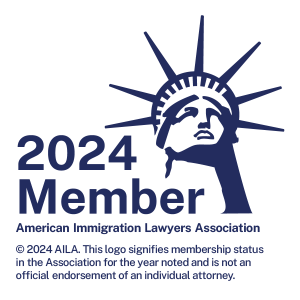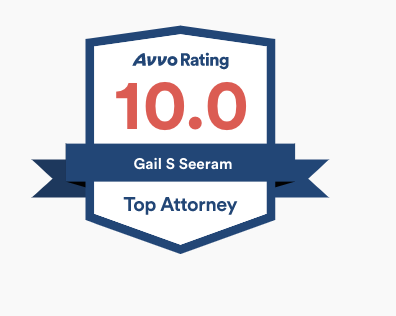There are several issues faced by immigrant children who are beneficiaries of a pending family-based immigration petition. One of the major issues is when a child turns age twenty-one before the issuance of the immigrant visa.
Family-based sponsorship petitions in the United States can take from one year to ten years depending on the relationship between the petitioner and beneficiary. In these cases, a child that is listed as a beneficiary may be under age twenty-one when the petition was filed but is over age twenty-one (or has aged-out) when the visa is being issued at the Embassy. Generally, if a child is being sponsored by a lawful permanent resident parent or U.S. citizen parent, when the child turns age twenty-one, the visa preference category is changed from a child under age twenty-one to a child over age twenty-one and the processing can take longer. However, if the child is a beneficiary listed under a petition filed for their parent by a U.S. citizen brother or sister and the child is over age twenty-one when the visa is ready to be issued at the Embassy, then generally the child will not be eligible for a visa since the child is over age twenty-one (or has aged-out). The exception to the general rules just stated is that the child may be eligible for the visa even though the child is over age twenty-one if the child meets the requirement of the Child Status Protection Act.
Under the Child Status Protection Act, a child beneficiary of a petition filed by a U.S. citizen parent, who was under age twenty-one when the petition was filed will not “age-out” if over the age of twenty-one when the visa is issued. In this situation, the child’s age freezes at the time of the filing. Also, a lawful permanent resident parent who filed a petition for a child, who was under age twenty-one, on the date the lawful permanent resident parent became a U.S. citizen will not age-out. Further, the child beneficiary of a petition filed for their parent by a U.S. citizen brother/sister is eligible to have his/her date of birth recomputed under the following formula: subtract from child age when visa available the amount of days it took Form I-130 to be approved after initial filing. Note, this has been simplified for the reader’s basic understanding of immigration. A more detailed case analysis by an immigration attorney would be required to determine a child’s eligibility for the Child Status Protection Act.
Question #1: My sister, who is a U.S. citizen, filed a petition on July 2, 2002 for my wife, three children and me. The petition was approved on August 5, 2003. My daughter was 15 when the petition was filed but now she is 23. The visa became available in November 2010. Will my daughter be able to get her visa for the U.S. even though she is over age 21?
Attorney Answer #1: In applying the Child Status Protection Act to your case, your child’s age of 23 would be recomputed to age 22 – making her ineligible for a visa under your sister’s petition as your daughter is over age 21. Basically, from her current age at the time the visa is available (23 yrs), you subtract the time between the filing and approval of the petition (1yr) and you get a recomputed age of 22. Upon your entry into the U.S. and receiving your green card, you can then file a petition for your daughter if she remains unmarried. A lawful permanent resident can only file a family-based petition for an unmarried child.
Question #2: I was sponsored by my parents and became a green card holder and entered the U.S. in July 2007 but left my son in Guyana with his mother. My son was age 20 when I became a U.S. citizen. I would like to file a petition to sponsor my son but he is now age 25 and still unmarried. Can I still sponsor him since he is over age 21?
Attorney Answer #2: Under the Child Status Protection Act, since your son was under age 21 when you became a U.S. citizen he is considered a child under age 21 even though he is 25 at the time of your filing. He will be considered an immediate relative of a U.S. citizen and a visa is available immediately (no backlog) but processing time may be 9-12 months.














